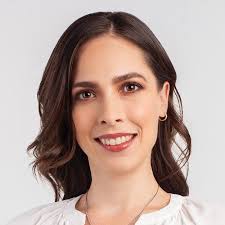By Águeda Ale Valdés
Promoter of the Care System in Monterrey, NL.
On August 7, 2025, the Inter-American Court of Human Rights (IACHR) recognized care as an autonomous human right for the first time. This is not just a legal reform: it is a historic advance that redefines the way we understand social justice, gender equality, and economic development. This achievement marks a turning point in the lives of millions of people, especially women, who for decades have sustained the economy and the social fabric through their care work, which is almost always invisible and unpaid.
It's another step toward moving from an acquired duty to public policy. Caring, being cared for, and being able to care for oneself are now recognized as rights. Not favors, not "family" responsibilities, not moral commitments. Human rights.
It's recognized that caregiving isn't romantic love; it's sustained work. Recognizing caregiving as a right implies assuming that it's not an individual matter, but a collective and state responsibility. It means understanding that caring for children, the elderly, or a person with a disability is as vital to the country as building roads or promoting foreign investment. It's a driving force for equality and the economy.
In our culture, caregiving has been treated as a private duty, associated with the family—and almost exclusively with women. This view has not only burdened caregivers but has also perpetuated structural inequalities, limiting their participation in education, employment, and public life.
The figures are overwhelming: according to the INEGI (National Institute of Statistics and Geography), the economic value of unpaid care work is equivalent to 241% of GDP. Incorporating this work into the public agenda not only dignifies those who perform it, but also opens the door to policies that promote social and gender co-responsibility.
Care infrastructure—childcare centers, services for seniors, equitable parental leave—is not an expense, but an investment with a guaranteed return. It allows more women to enter the labor market, increases productivity, and creates formal jobs in the sector.
Celebrating this recognition is celebrating that no one should have to choose between providing care and living their own life plan. It is affirming that care is not charity or favor, but an enforceable right that must be guaranteed with quality, accessibility, and equity.
What does this mean for Mexico?
This international recognition must force the Mexican state to stop looking the other way. Speeches aren't enough; we need national care systems with budgets, infrastructure, and public and private co-responsibility.
Defending care as a right means defending a more just, competitive, and humane country. It's not just about recognizing those who care; it's about building a Mexico where all people have the opportunity to receive care and to provide care without sacrificing their well-being or their dreams.
The challenge that remains is to ensure that this recognition doesn't remain on paper. It must be translated into laws, institutions, and budgets. Women must no longer bear the sole responsibility of caring for Mexico. Being a mother, daughter, sister, or neighbor must no longer be synonymous with chronic exhaustion.






